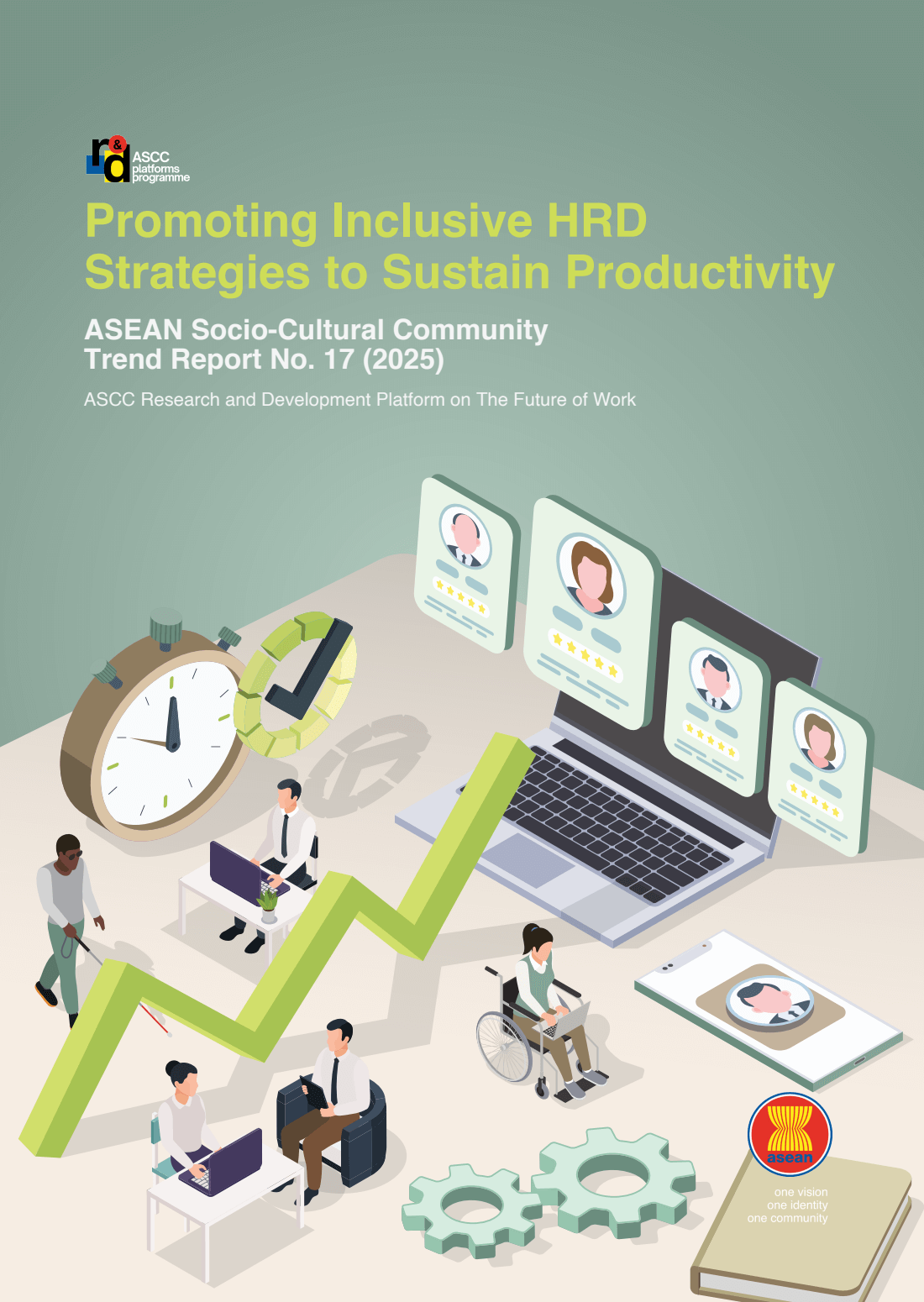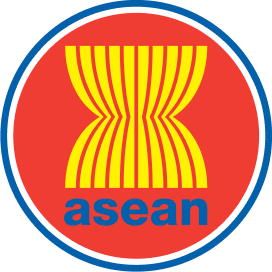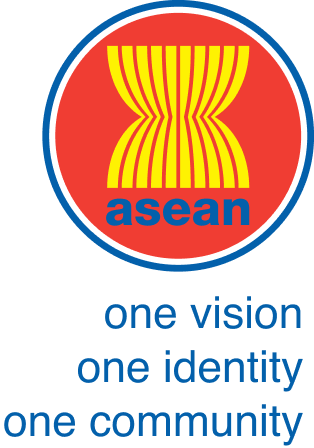

EXECUTIVE SUMMARY
ASEAN’s recovery from the COVID-19 pandemic highlights how inclusive human resource development (HRD) strategies have been critical for addressing widening inequalities, the digital divide, and the pandemic’s disproportionate impact on marginalised groups such as women and outsourced workers. By prioritising inclusivity, ASEAN can unlock the full potential of its workforce, foster innovation and growth, and ensure equitable access to decent work, social protection, and training. This report focuses on the vulnerabilities faced by two distinct groups–outsourced workers and women–to explore how targeted interventions like bridging the digital gender divide, improving work/life balance, and ensuring access to social security can build a resilient and equitable post-pandemic workforce. Inclusive HRD strategies can support economic growth while promoting social cohesion and equal opportunities in the labour market.
As ASEAN advances inclusive HRD strategies, it must also contend with the implications of three global megatrends on its workforce: digitalisation, global value chain (GVC) reconfiguration, and the greening economy. These trends have been reshaping the labour market, creating opportunities and challenges for marginalised groups such as females and outsourced workers. Digitalisation has accelerated the adoption of automation, platform-based gig work, and remote work, driving efficiency and expanding global talent pools while creating skill gaps and exacerbating inequalities. Similarly, GVC reconfiguration, spurred by geopolitical shifts and new labour regulations, offers ASEAN opportunities to attract investment while potentially deepening inequities experienced by low-skilled and female workers. Finally, ASEAN’s transition to a green economy underscores the urgency for reskilling initiatives, especially for workers displaced from traditional industries and underrepresented groups in green jobs. ASEAN must adopt inclusive strategies tailored to ensure that its workforce can navigate the megatrends’ effects on this evolving landscape.
Inclusivity is based on four principles: ensuring decent work, expanding access to employment opportunities, promoting participation in skills training, and providing robust social safety nets for outsourced workers. These strategies have been designed to mitigate vulnerabilities while empowering marginalised groups to help them to contribute meaningfully to ASEAN’s growth. By addressing structural inequalities and investing in equitable labour market practices, ASEAN can foster a workforce that is competitive and inclusive to ensure that no one will be left behind in the region’s journey toward sustainable development.
It is also important to explore the barriers to increasing inclusivity in ASEAN, such as entrenched cultural norms perpetuating wage gaps and limiting workforce participation, weak enforcement of anti-harassment policies, and the exclusion of outsourced workers from labour protections. Additional barriers have resulted from gender biases in science, technology, engineering, and mathematics (STEM); limited access to digital skills training; and the lack of inclusive employment policies for outsourced workers. Barriers to participation in training and skill development have been shaped by stereotypes, financial constraints, and the non-recognition of informal skills. Finally, barriers to social safety nets for outsourced workers arise from legislative gaps that exclude them from benefits such as social security, underscoring the need for stronger legal protections. Addressing these interconnected barriers is vital for fostering an inclusive and equitable workforce in ASEAN.
Currently, inclusive HRD strategies in ASEAN have sought to address some of these gaps and promote workforce equity. ASEAN-led initiatives, such as its Guidelines on Gender Mainstreaming and Declarations on Social Protection, provide frameworks to ensure decent work conditions, equitable employment opportunities, and access to skills training for female and outsourced workers. National-level efforts also showcase the importance of tailored initiatives in overcoming stereotypes, fostering economic inclusion, and enhancing employability for these groups.
However, gaps remain in enforcement and the explicit inclusion of outsourced workers in legal and regulatory frameworks. Moving forward, implementation and strict monitoring of these drivers will be essential to achieving a more inclusive and resilient workforce in ASEAN, driving the region closer to its goal of equitable development for all.







